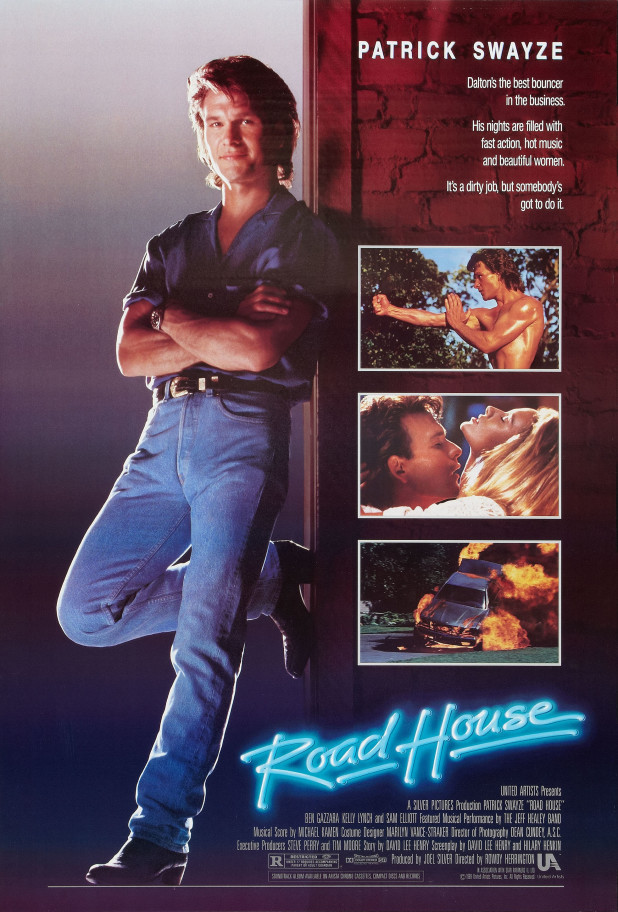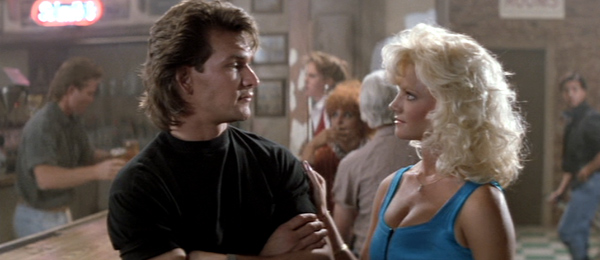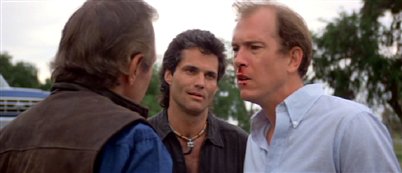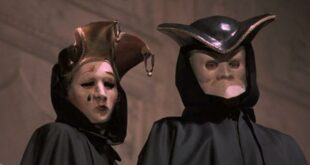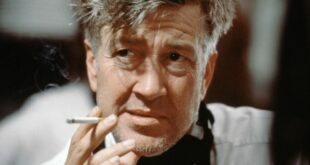Silas Reynolds
Daily Stormer
July 20, 2016
Western civilization is now experiencing a “happening” on a monthly, even a weekly basis, proving the “Diversity + Proximity = War” theory is, an actuality, a law. When will the normie wake up? When will this ride end? We know, but there’s going to be a lot more blood in the streets, deportations and helicopter rides before that happens. Sometimes, even the coldest right wing death squad reader need some escapism – a break from the madness. So, consider this review, and I encourage you to see the film, a little rest and relaxation (or “R&R” as my grandfather would say, when he was taking a break from fighting the Chicoms at the Chosin Reservoir) from the culture war (in Nice, France it is an actual war – they’re likely still mopping up the blood from the streets).
I enjoy watching films that I’ve seen dozens of times, it’s akin to reading an old book and you almost always catch something different every time you see it. It also reminds me of the various times in my life that I’ve watched the film with others or what I was doing when I watched it. For instance, I’m reminded of the first time I watched the outstanding 1989 film Road House with a group of drunken bohemian hipsters about ten year ago. As the thorough opposite of a southern hipster (speaking of hipsters – they do vary from their northern counterparts, if only slightly), they treated me with a mix of troubling fascination, intrigue, but also caution. For background, I found myself in this den of Pabst Blue Ribbon, fedoras and cheap tattoos by fulfilling Sylvia Plath’s accurate assessment that “every woman adores a fascist” and hijacking their faggoty movie night (no normal person wants to watch Vittorio De Sica’s Bicycle Thieves). Plath’s poem is bizarre, but the line itself, is most certainly true.
Within minutes of watching Road House, my hipster audience, unsurprisingly, fell out of favor with the film – the film opens with a 1980s style hot blonde, all legs and a tight dress, climbing out of a bright red Ferrari Testarosa, rock music playing in the background, as she sashays her way into the club. Watching the film, it feels as if it’s set on another planet (both the opening in Chicago, but also later in rural Jasper, Missouri) – with little to zero diversity, no PC-infused tropes, outwardly feminine female characters and macho blue-collar storytelling. This didn’t settle well with the hipsters, naturally. Ironically “liking” a Patrick Swayze (taken too soon) B-movie is vastly different than sitting through and actually enjoying it, then again, that’s hipsters for you – as Christian Lorentzen said, “hipsterism fetishizes the authentic… regurgitates it with a winking inauthenticity.”
The plot is very straightforward and has a modern Western feel to it. Swayze’s cool and methodical “Dalton” (no full name given) is hired by the cuckish Frank Tilghman to clean up his roughhouse and white trash infested Missouri bar, The Double Deuce. As an aside, some don’t consider the “Show Me” state to be southern, but it certainly has heavy elements of it, since it was a border state and forcibly occupied by the Union government – so, the southern accents in the film, along with monster trucks, are appropriate, as well as, Ben Gazzara’s carpetbagger villain, Brad Wesley. Dalton eliminates the negative elements in the bar, such as drug users, thieves and white trash banging likely underage girls, which in turn, sets off a war with Wesley, who essentially runs the entire town with an iron fist, and leaves the town in near ruins.
Dalton’s enemies are the hired guns of Wesley, the extortionist, woman basher and whose gaudy home includes an extravagant exotic trophy room. Everyone in Road House has a name out of a John Wayne Western – not only Dalton and Brad Wesley, but also such characters as Wade Garrett, Emmet, Doc, and Cody. Dalton wades into the fray on opening night and finds himself in the middle of a fight in which the furnishings of the Double Deuce are reduced to matchsticks. Wounded by a knife cut, he goes to the hospital, where the wound is sewn closed by the beautiful fair-haired Doc (Kelly Lynch), who is impressed by Dalton’s NYU doctorate in philosophy and his ability to withstand pain (note: all women are).
The film succeeds at its incredibly subtle balance of grassroots humor and increasingly severe, throat-ripping (one of the best parts of the film) violence. It gathers an excellent ensemble of blue-collar actors – from Sunshine Parker (the typical “old codger” stock character), X bassist John Doe (also in the underappreciated Pure Country, although not an admirable acting performance from the legendary George Strait), professional rasslin’ great Terry Funk and raspy voiced Sam Elliott. It’s also home to some fine music courtesy of the late Jeff Healey (recommend his haunting ballad Angel Eyes) and his band. Among the many reasons that Road House works so well is the mixture of bluesy/country/rock music, in addition to Jeff Healey (whose band has to play behind chicken wire within the pre-Dalton Double Deuce), there are quite a few classics and even Cruzados (talented, but Chicano rock nevertheless) makes an appearance.
And, Gazzara’s Wesley makes a compelling antagonist to Swayze’s Dalton. Below is a snippet of the dialogue that would never be in a “Current Year” film:
Brad Wesley: “You disgust me, O’Connor. You wanna know why you disgust me?”
O’Connor: “No, why, boss?”
Brad Wesley: [punches O’Conner] “’Cause you’re a bleeder. You bleed too much. You are a messy bleeder.”
Wesley kicks him in the groin
Brad Wesley: “You’re weak. You got no endurance for PAIN.”
Wesley karate chops him and knocks him down
Brad Wesley: “Awe, come on, get up. Hey, you’ll be fine. Come on.”
Brad Wesley: [Wesley’s men stand him up] “You’re gonna be fine. And you know why? Because I like you.”
Wesley punches and knocks O’Conner out
Brad Wesley: [to his men] “Get this piece-of-shit coward out of here.”
Directed by a man whose name fits quite well with the film itself, Rowdy Herrington, and produced by (((Joel Silver))), it stands as an almost masterpiece of macho rural Americana. Herrington allows his cast to joyously beat the living shit out of each other and utilize excellent one-liners (i.e., “I used to fuck guys like you in prison!” and “Paint don’t hurt”). The film includes all the trappings of pre-pozzed Hollywood – dashing into an exploding building to save an occupant, a band protected by a Plexiglas shield, goons who line up for instructions and call Wesley “boss,” a lecture on the finer points of bouncing, blade installed on the tip of a boot (for a killing roundhouse kick) and a sexy lady doctor who puts out on the first date.
I give this blue-collar relic of a film four stars. The cast, dialogue and fighting scenes are top-notch, especially when a faggot gets his throat ripped out.
PS. Follow these three simple rules:
- Never underestimate your opponent. Be ready for anything.
- Take it outside
- Be nice. Until it is time to not be nice.
Ranking System:
0 Stars – To Wong Foo, Thanks for Everything! Julie Newmar
1 Stars – Dirty Dancing: Havana Nights
2 Stars – Steel Dawn
3 Stars – Uncommon Valor
4 Stars – Point Break
5 Stars – Red Dawn
 Daily Stormer The Most Censored Publication in History
Daily Stormer The Most Censored Publication in History
